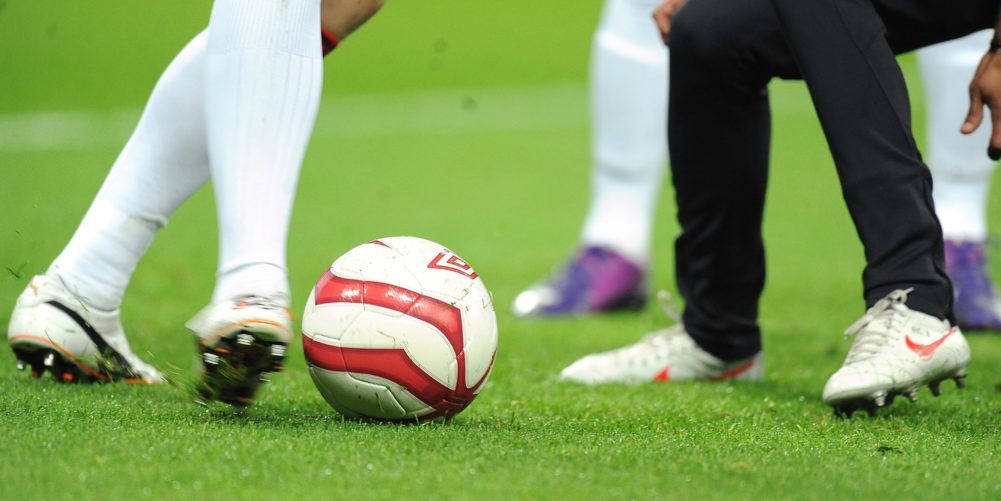Debates rage when it comes to ranking association football leagues. Two of the most famous domestic leagues are England’s Premier League and Italy’s Serie A, which are discussed alongside Spain’s La Liga and Germany’s Bundesliga often. Sometimes, the debate even crosses over into national discussions.
For example, a comparison between the Premier League and Serie A right now might transform into a debate on the upcoming Euro competition. Currently, the spotlight is on both England and Italy for the 2024 Euro. In terms of odds, England is the favorite alongside France, while Italy is treading water as an underdog.
However, given the last outcome of the tournament, it’s too early to forecast how the Three Lions and the Azzurri will fare. Given Italy is starting out in a potential death group alongside Croatia and Spain, it will be sink or swim for the Italian side early on. But what about looking at the domestic leagues from these nations, in which players from around the world compete—is there a clear champion?
Let’s take a deeper look at the Premier League and Serie A to figure out which league is better.
The Case for the Premier League
We’re going to take a look at a few different metrics to compare these leagues below, including talent, legacy, coaching, and even fandom. But first, let’s take a more broad-strokes approach to breaking down the most iconic element of each league. The Premier League, for example, is often hailed as the world’s most elite association football competition. Even teams facing relegation might topple an average team from the Bundesliga or even Serie A.
But there’s another unique differentiator between the leagues that has nothing to do with on-pitch talent: marketing. The Premier League might more appropriately be discussed in terms of business success. Since it was rebranded in 1992, the Premier League has largely led European association football in terms of revenue.
Behind the Premier League is the Bundesliga when it comes to pure profits, with La Liga close behind. In one study stretching from 2012 to 2022, the Premier League doubled Serie A profits almost every year. With more marketing power comes more funding—and with more funding comes more powerful players, more legacy-level coaches, and a better fan experience.
The Case for Serie A
That being said, no true football fan would ever confuse profits for football prowess. Fans are loyal to teams because those teams are a part of their intrinsic identity—and that sense of value has nothing to do with money. And when it comes to comparing the two leagues strictly based on play, then it seems Italy has a strong hold on the personal experience.
Fifteen of the twenty teams in Serie A today are owned by Italian families and individuals. Many of these have been legacy owners active for decades. Their goal is to support the team and, in doing so, a larger community. The Agnelli family, which owns Juventus, is the star example, having owned the club since 1923. The idea of keeping clubs close to their roots is a priority for most football teams—but it comes into starker contrast when comparing these leagues.
Of the twenty Premier League teams, only four teams are owned by a majority English stakeholders. The top three teams (Man City, Arsenal, and Liverpool) are owned by American businesspeople and state-controlled funding groups from the UAE. These funds, as discussed above, are fantastic for the league in terms of marketing and broadcasting. But when it comes to identity, Serie A seems to have a much stronger focus on its Italian roots.
Metric #1: Talent
There’s no question when it comes to comparing leagues based on talent: the Premier League, thanks to its heavy pockets, has better players. The league has a stronger atmosphere surrounding it and, especially when compared to Serie A, sells a lot more stadium tickets.
Still, this hasn’t stopped teams like Napoli, AC Milan, and Inter Milan from making their way towards Champions League finals in recent years. However, it’s not all about silverware. Unfortunately for Serie A, there’s no Mohamed Sala, Kevin de Bruyne, or Erling Haaland in Italy.
Metric #2: Legacy
At least, not for right now. Another metric to study these two leagues is their legacy. And this metric works slightly in favor of Serie A. When looking at teams that have the most UEFA Champions League titles since its start in 1955, AC Milan comes in second place with seven trophies. In terms of Ballon d’Or recipients, Serie A trails La Liga closely in terms of total number of winners.
Even in terms of World Cup champions, Serie A has helped produce and support major talent. Juventus alone has produced 27 champions, followed by Inter Milan with 20, Roma with 16, and Milan with ten.
Metric #3: Coaching
The world’s most competitive coaches are working in the Premier League today. At the top of the table are Arsenal (Mikel Arteta), Liverpool (Jurgen Klopp), and Man City (Pep Guardiola), which comprise some of the world’s most elite and visionary management talent. (Though if we were studying the nationality of the coaches, Spain would come out ahead.)
That being said, Serie A isn’t so far behind. Jose Mourinho is heading Roma still, while Napoli was headed by Luciana Spalletti until he left to coach the national team. Additionally, until he recently went to Tottenham, Antonio Conte was also a leading coach.
Metric #4: Fandom
Fans of both leagues are known for being some of the most passionate and ardent in the world. However, as we mentioned above, the Premier League has a strong lead when it comes to selling out stadiums. By comparison, Serie A is known for its half-empty stadiums—even if its fans are loud enough to make up for the difference.
Though you’re not likely to see empty seats in Turin or Rome, ghost-like stadiums are the norm for smaller clubs. That isn’t the case in the Premier League or even the EFL Championship. Even up-and-coming or down-and-out clubs are likely to see their fair share of very noisy and passionate fan movements.






















